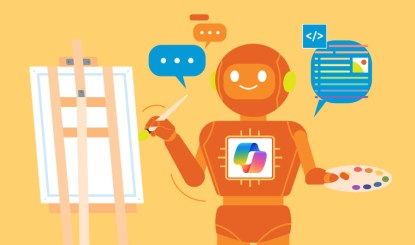Last month, Microsoft hosted its latest Ignite event, where developers and technologies from all over came to Seattle, Washington (or virtually) to find out the latest developments and “feature drops” Microsoft plans to make generally available. Over the years, it’s provided a chance for IT professionals to talk with Microsoft experts about the latest updates, and this year Microsoft’s leaders focused their announcements around AI.
Generative AI has been a hot topic for as long as ChatGPT has been available (just over a year now), and it’s not a secret that Microsoft’s made a massive investment in OpenAI so it can access the technology. Microsoft has taken that investment and released generative AI features in its Bing search, and some have even gotten access to the early version of Microsoft’s Copilot features, but no one knew when they were going to make those features broadly accessible across their environment.
Well, as of the end of Ignite 2023, we finally have some answers. Let’s dive into the most exciting announcements to come from this year’s conference:
Power Virtual Agents Leveraging Generative AI
Power Virtual Agents (PVA) has been a feature of Microsoft’s Power Platform for some time, but it’s been a rudimentary version of what chatbots can do in the age of generative AI.
Previously, PVA relied on inputs and user directions to create the chatbot experience, but it never relied on a true AI model to determine the course of a conversation. With the integration of the generative AI capabilities that comes from Microsoft’s investment in OpenAI, PVA will be able to train on existing data to develop a more robust user experience when someone needs assistance.
Creating a Development Environment with the help of AI
Alongside the integration of generative AI into existing offerings like PVA, Microsoft announced that it will also be introducing a development environment for generative AI models in the form of Copilot Studio and Azure AI Studio.
Both environments will allow users to create generative AI models that can power chatbots across their organization. This will give business users and seasoned developers the ability to deploy generative AI in unique ways, tailored to fit the needs of their organization without relying on a third party to develop those tools. The real difference between Copilot Studio and Azure AI Studio is that the former will be housed within Power Platform with a focus on authoring the above-mentioned PVAs with GenAI, whereas the latter will be an environment that allows developers to create totally custom solutions that harness the power of the OpenAI API – allowing training for both foundational and non-foundational (from scratch) models.
Tools to Better Integrate Your Data Estate Are Now Available
Alongside the exciting integration of generative AI into Microsoft’s offerings, Ignite also saw the of general availability of Microsoft’s Intelligent Data Platform (MIDP). The MIDP will include Microsoft Fabric, alongside additional services and resources that allow an organization to focus less on data management and more on getting insights from their information.
However, MIDP will do more than provide a robust data management platform. Given how many other offerings Microsoft has integrated Copilot technology into, it’s unsurprising that MIDP will also provide users with the tools to use machine learning, data science, and AI models to suggest algorithms for analyzing data so it can surface insights quickly and efficiently.
All of these features combined mean that MIDP will streamline the process of data management, data engineering, analysis / visualization, and data science for organizations so it’s far easier to make decisions based on data rather than intuition.
Copilot will Become Widely Available
Microsoft Copilot has been discussed in circles of Microsoft experts since a few months after Microsoft’s investment in OpenAI made headlines. It’s been experimented with in smaller releases, but this year’s Ignite conference came with the announcement that Copilot will become available to the general public.
While some of the functionality of Copilot could be found in Bing Chat, Microsoft has chosen to convert Bing and its services fully to Copilot. The tool will allow anyone to unlock the power of generative AI to streamline their business processes.
This will be occurring alongside the increased Copilot functionality organizations will have access to as part of their Microsoft environment. While there are tailored services Microsoft will offer to enable streamlined Sales processes and data management, Microsoft has also noted that the new Copilot will be able to help with the assessment and repair of any issues within an organization’s cloud infrastructure. If it’s unable to correct the issue on its own, then it will notify the necessary parties so they can mitigate vulnerabilities.
Preparing for the Age of Copilot
Microsoft has noted before that it hopes to bring AI to the masses (just as it has successfully done with BI and Machine Learning), and in many ways, the announcements coming out of Ignite shows Microsoft’s commitment to the project.
However, integrating generative AI into low code/no code solutions and making it easier for businesses to leverage their data doesn’t mean that it’s going to be easy for organizations to do. One of the biggest areas businesses are likely to need assistance is with ensuring its data is secure, cleansed, and normalized once they deploy their generative AI models and tools. Many organizations don’t have a solid grasp of where their data is located, who has access, whether it maintains full data integrity, and more — so many operate with sensitive data protected only by virtue of it being obscure and unknown. Once Copilot and other generative AI tools are deployed in your organization’s IT environment, it will take advantage of all data it has available.
If you’re looking forward to leveraging the tools Microsoft announced during this year’s Ignite conference, then it’s critical that your organization take steps to prepare your data for AI. Not sure where to start? Consult with data experts who have decades of experience.



